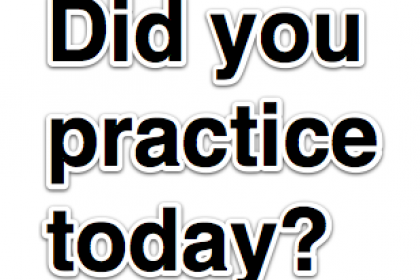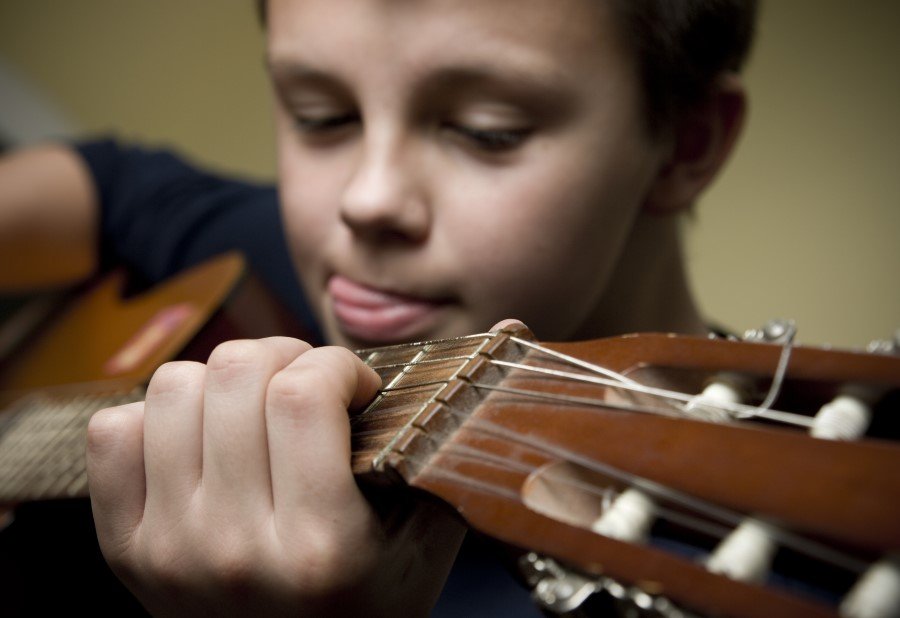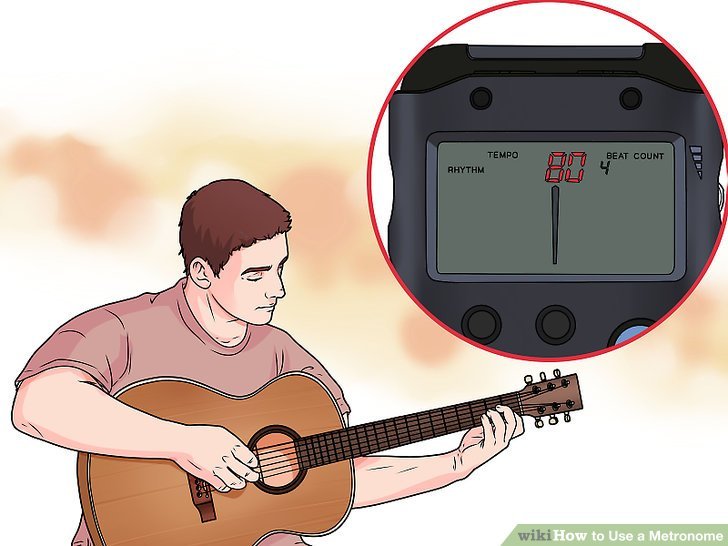Hello my steemit community, today I bring something a little different than usual. I decided to post about my daily practice routine for guitar, Although it could be for any instrument. I'd like to point out that this are My Rules and are not ment to be taken as the ultimante practice routine guide, yet I hope they could be helpful for someone looking for a guide to practice any instrument, in my case the guitar. Also I'd like to point out that it may be a lot of other post out there talking about this same subject and even with the same rules, this is because this is a universal thing and there is a lot of guitar players dealing with this issue.
The importance of having a guide for practice
Why having some kind of guide of rules for practice?
just get the guitar and start playing!
I think there is very important to have some kind of rules or guidelines for practice because:
- It gives you a checklist to make sure nothing get missed
- What get measured, get managed . So it helps you to keep track of your progress
- It helps you focus in what your are doing
- Is help you build discipline on practice
Without much further ado...
My Rules for Guitar Practice
1. Establish a goal for practice
First we have to begin our practice time with a goal in mind, I mean, it's very importat to know what we want to achive after practice. Maybe we want to gain some speed, or even play a certain piece or song. Maybe we want to be more clean or master a specific thecnique.
If we just jump in to the instrument without thinking about what are we looking for or even without looking for anything specific we may wander around for hours and not getting anywhere.
A goal will give you a purpose for practice, even encorage you to keep going when you get tired or frustrared. Define it, put it where you can see it and begin the practice.
Goals could be for short, middle or long terms, I mean, It may be a goal that would take you a year, another may take you a week, and some goals may take just a few hours of practice, manage them properly . So begin with a goal, establish what you want to achive and get to work.
2. Practice at the same time in the same place when is possible
It may be a little diffciult specialy if you are on tour from time to time, but if it is possible we should have a practice room of some kind. This may be your bedroom or a studio, but the most important think is to set a practice schedule and respect it. This is something recomended for any study of any subjet and guitar or music are not the exception. Remember we also looking for getting discipline and this is where we start.
3. Practice a set amount of time
Along with having a schedule is also important to establish for how long are we going to practice, as much as we may want to, practice can't last forever. First because we have others things to do, and second because of our health. So to be efective it's best to set up the amount of hours for practice. This will have an inpact in your future performance and will be determined by your goals. If we planning to master a concerto or a very virtuosic music more time will be requred.
Now this doesn't have to be all at the same time, we can distribute our practice time into blocks along the day.
4. Practice a routine (Warm up, exercises, study of the material, creation)
This is a subject for a whole post itself, a lot can be said about practice routine, but also this is a very personal thing as well. Each musician would have his own goals so their routine may vary.
The general routine will have:
5. Practice what is most difficult for you
6. Practice with a metronome
The metronome is the most powerful tool for musician, this is a measurement tool, this will tell you how your progress is going. There is a lot of types of metronomes, digital, devices, etc. Most keyboards has a metronome and there is also software that can be use. Some metronomes has advace features but the important ones are the BPM that tells the you bits per minute and the tempo for speed up.
7. Take brief breaks during practice
To avoid pain or get over tired is a good practice to take small breaks from time to time, relax the hands, the body and rest for a while and then get back to the instrument. This breaks are to do something else but play. Some musician may experience pain in the back, arms, wrist or fingers because bad practice routine in the past.
8. Be comfortable during practice
Is Important to feel relax and comfortable during practice, if it hurts you probably doing it wrong. Technique is about doing music the right way not only in sound but in the position of the hands and body to avoid pain.
9. Make music during practice
If we just do exercises12 hours a day we are going to be a person who do very good exercises, so the idea is to make music out of everything we play, even the chromatic exercisescan be turn into music. This will help us in composition and improvization as well. So try to think musicly along all the practice.
10. Practice every day
This is one of the most important ones, practice every day. Is more what we can achieve in 1 hour of practice during 7 days in a row than 7 hours in one day, so is better if we commit to practice daily. We can't cheat on this, if we really want to progress this is the key.
11. Evaluate your progress
Last but not least evaluation, keep a record of your progress, your achivments, what is cousing you much trouble and so on. In piece study is a good idea to divide it into parts for study and then is possible to keep track of where we are. We can check what we alredy master and focus then in the rest.
This step will tell you what goals to establish in the future and we are back to rule numer 1.

Source



